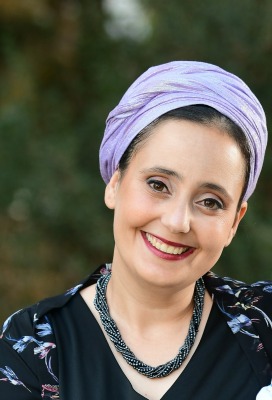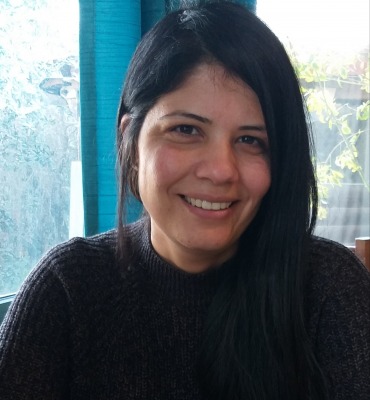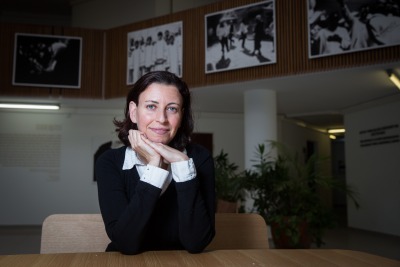2019-2020
|
Hozam Hardal Zreik PhD Candidate the Paul Baerwald School of Social Work and Social Welfare |
The Social Work Profession and Female Social Workers in Palestinian Society in Israel: Perceptions, Experiences and Media Representations Social work profession in Arab society is not only a space which affected by professional, political, cultural and economic processes Arab Palestinian society, but also by class, ethnicity and gender power relations that intersect and affect each other in many ways to construct female Palestinian social workers' experiences in Arab society and their visibility .The study has two main purposes, the first is to examine the ethno-gender aspects of the social work profession, the power structures and systems of domination surrounding Palestinian female social workers who work in social services departments in Arab Palestinian society. The second is to explore how media, especially the written press, represents Palestinian female social workers as well as how these representations shape and influence their perceptions, actions and their public image. |
|
|
|
||
|
Liron Benisti PhD Candidate the Paul Baerwald School of Social Work and Social Welfare |
The perception of disability and the parenting experience among mothers of a child with a disability in Orthodox society Liron Benisti, MSc., Is currently studying for a doctorate at the The Paul Baerwald School of Social Work and Social Welfare, under the supervision of Professor Shirley Werner. Her study deals with the perception of disability among mothers in the ultra-Orthodox community who have a child with a disability. The research is conducted according to the principles of a qualitative research method, and for this purpose, 30 mothers from different streams in the ultra-Orthodox community were interviewed. The mothers shared their personal experiences about their motherhood and meaning of dissability in the cultural context. The study is fascinating because it is conducted within the borders of the ultra-Orthodox community, which is a closed society by choice, and examines the use of the discourse of rights in light of the cultural-religious context. Watch Liron's Zoom lecture here
|
|
|
|
||
|
Shireen Sokar PhD candidate at the Paul Baerwald School of Social Work and Social Welfare |
The relationship between exposure to parental violence during childhood and psychological distress and the quality of marital relationship among married Arab adults: The mediating role of sense of coherence and attachment style
The study will examine the long-term implications of exposure to parental violence during childhood on psychological distress and the quality of marital relationships among Arab adults in Israel. Children exposed to parental violence may experience adverse effects on their physical and mental health, cognitive development, and interpersonal relationships during adulthood. Nevertheless, not all children exposed to parental violence experience long-term consequences, and a substantial proportion of them have shown resilience and positive adaptation. The wide variability of findings led researchers to examine additional variables that might impact and interfere with the relationship between exposure to parental violence and its outcomes. The study will examine the role of sense of coherence and attachment styles as mediators of this relationship. |
|
|
|
||
|
school of Education |
|
Arab educational leaders' role as socialization agents toward promoting students' integration into society: incompatible or complementary?
|
|
|
||
|
The Department of Sociology and Anthropology |
Multi-culturalism and Disability Arts: Diversity Lab of Bodily Differences This study will examine the socio-cultural questions of how equality and diversity can be created and maintained within the meeting with social otherness, and which cultural practices may promote equity and diversity while avoiding practices of normalization (through passing and medicalization), and Othering (through segregation and exoticization). My anthropological, ethnographic study examines these questions through the global case study of the Disability Culture phenomenon,-- a disability rights movement and collective awareness through which people with disabilities claim a culture that affirms disability, establishing physical difference as something to be expected and respected, valued on its own terms as an aspect of ordinary, human experience. I will look into “diversity work” done in the context of disability pluralism and multiracialism within disability performing arts projects in Israel and abroad, asking about the broader potentials as well as limitations of negotiating diversity and aspiring for socio-political change when those goals are intertwined with the body. Rethinking practices aimed at promoting equality and diversity within the disability culture case. |




